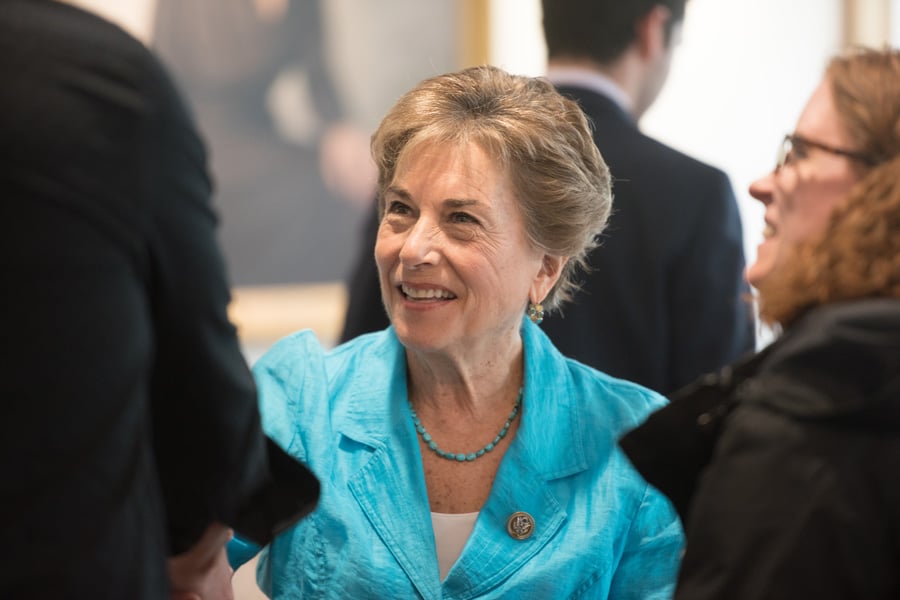Schakowsky talks bridging gaps, eliminating disconnect to Democratic Party
Jeffrey Wang/Daily Senior Staffer
U.S. Rep. Jan Schakowsky (D-Ill.) discusses policy issues and voter disconnect with Northwestern community members. The Q&A event was hosted by the political science department.
May 9, 2017
U.S. Rep. Jan Schakowsky (D-Ill.) emphasized the importance of bridging gaps between voters and the Democratic Party during an event at Northwestern on Tuesday.
The congresswoman talked about how a disconnect between the party and voters played a central role in the 2016 election to an audience of nearly 60 students, faculty and staff in Scott Hall. The talk was in the form of a Q&A hosted by the political science department.
Schakowsky said democratic policy positions on matters such as the Affordable Care Act did not gain enough traction until the policies faced credible threats by President Donald Trump’s administration. On Thursday, the U.S. House of Representatives narrowly passed their version of health care legislation – with unanimous Democratic opposition — and the measure is now being worked on in the U.S. Senate.
“At the end of the day, the thing about health care, and a lot of other issues, is it’s very personal,” Schakowsky said. “People understand them not because of ideology or a political party perspective, but ‘what does it mean to me?’”
The burden of educating citizens on how major policies have an everyday impact lies heavily on elected representatives, Schakowsky said. She said Democrats failed in this regard prior to the election, while Trump was able to form emotional bonds with voters by convincing them change was in their self-interest.
Even now, as the Democratic Party tries to save policies established under former President Barack Obama, people feel like they are not being heard or listened to, Schakowsky said.
“We’re just in la la land that everything is working just fine, and we know it isn’t,” she said. “We have to be out there; we have to be fighting.”
Every year, the political science department hosts speakers such as Schakowsky to bridge the worlds of political science and policy practice for the community, undergraduate program assistant Pamela Straw told The Daily.
“People are very shaken up about what is going on in politics right now,” Straw said. “A lot of questions today came from that sense of what can we do going forward? How can we mobilize?”
Other topics of discussion included the threatened security of undocumented immigrants and environmental policy. After further prompting from audience members, Schakowsky agreed to propose to her Democratic peers in Congress that they become more proactive by creating their own alternative legislation for contentious issues and by reaching across the aisle.
Medill senior Danielle Levy, who attended the event with her public policy class, said she still wants to know what is being done to bridge the gaps among voters, party leadership and policies. Levy said she felt no concrete resolutions were discussed at the event, but that it was helpful to talk to Schakowsky.
“This was a great opportunity to talk to somebody who has some power,” Levy said. “Any chance you can get to discuss the issues we feel are important to us is something we should really take advantage of.”
Email: [email protected]
Twitter: @rdugyala822


